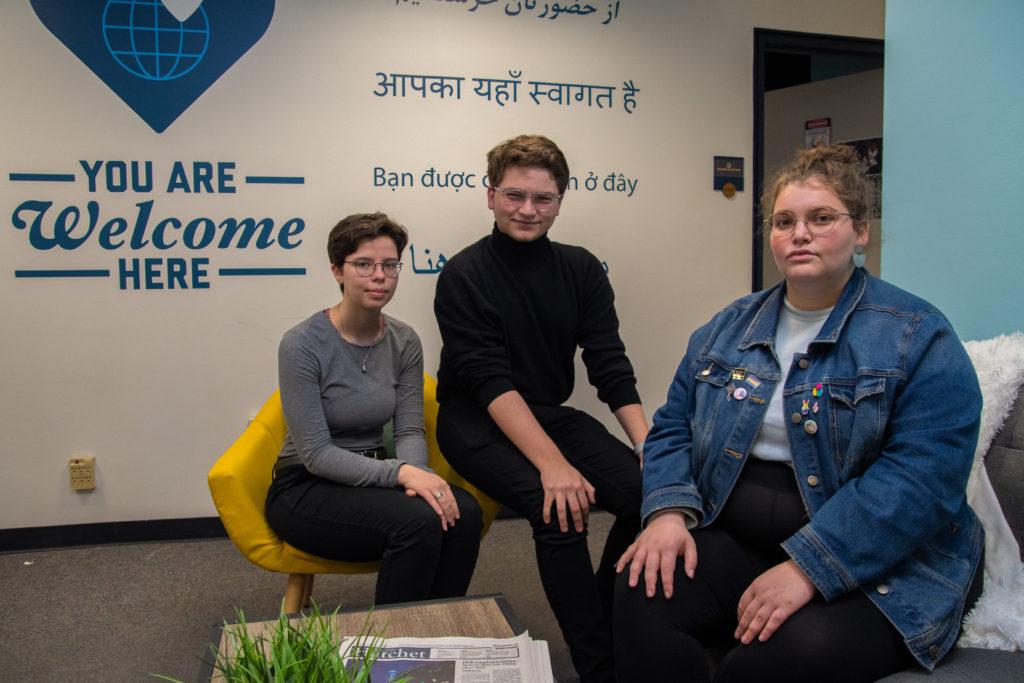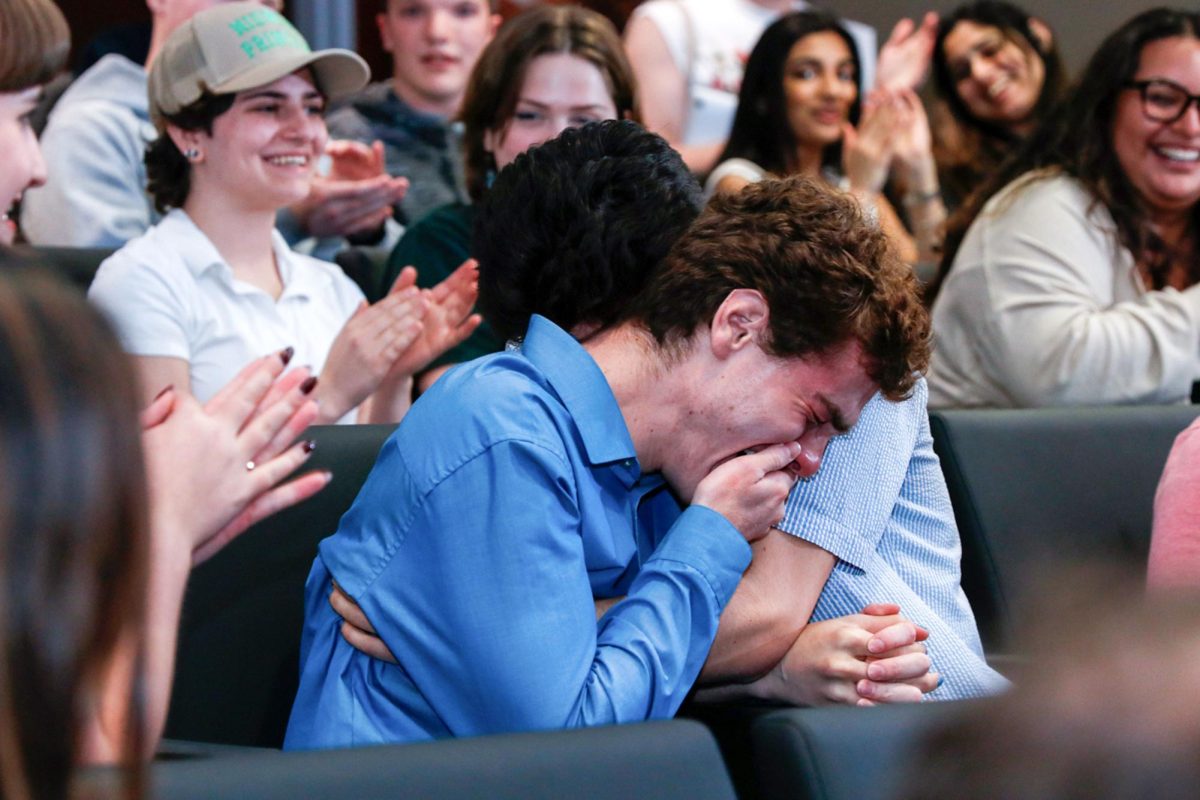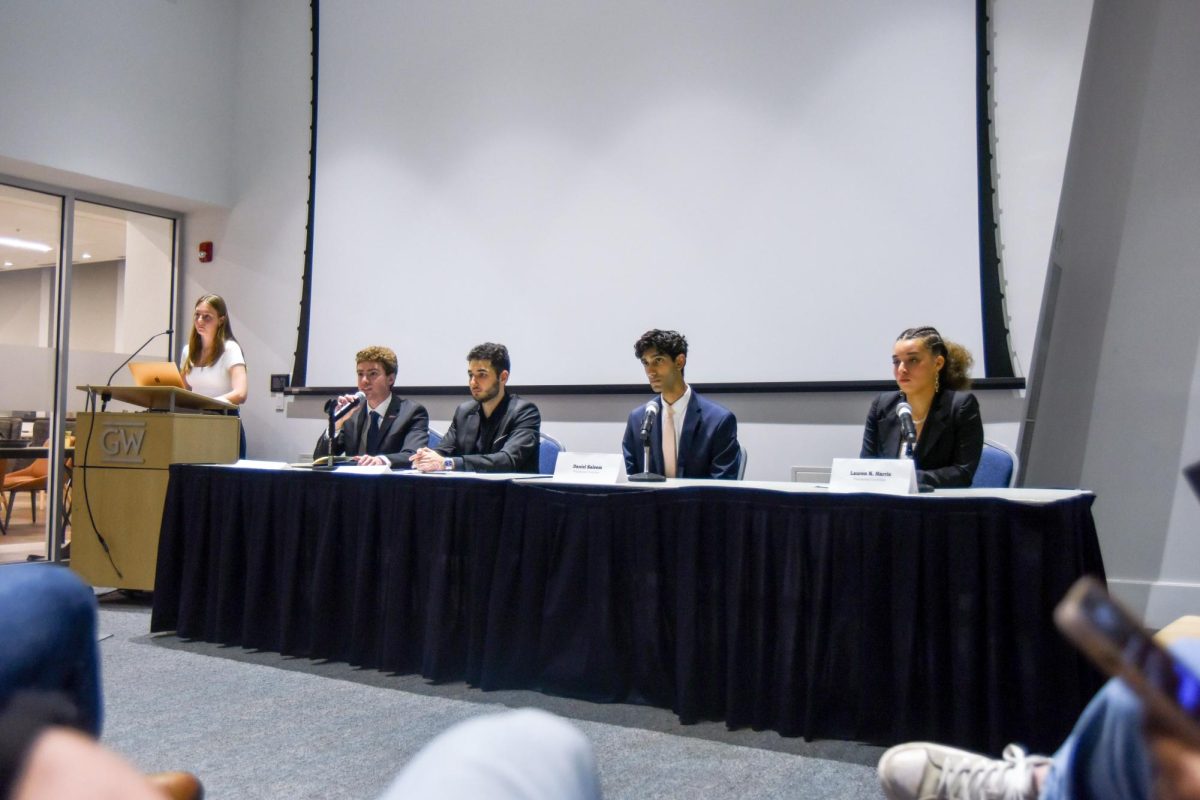A group of Student Association leaders aiming to combat anti-Semitism on campus said they will spend the semester working to improve accessibility for bias incident report systems and encourage officials to incorporate religion in diversity modules.
After an anti-Semitic Snapchat rocked campus last semester, the SA formed a task force aimed at encouraging tolerance for religious diversity and preventing anti-Semitic incidents. Task force members said they hope to incorporate modules discussing religious diversity into new-student trainings to educate students on ways to react to anti-Semitism.
Hannah Edwards, the SA’s vice president for diversity and inclusion and a task force member, said the group held its first meeting last Sunday to discuss members’ goals for the semester.
“My hope is that students working with the task force will see that not all members of the Student Association are just walking buzz words, but passionate individuals who are truly trying to make change at GW,” Edwards said.
Julia Kerrigan, the SA’s director of interfaith engagement and a task force co-chair, said she hopes the committee will initiate conversations with officials to figure out how to address past incidences of anti-Semitism with “lasting institutional change” and “guidelines that stick.”
“Everyone belongs on this campus and everyone deserves to feel comfortable on this campus no matter your faith background,” Kerrigan said. “You should be able to have a place here without feeling like you’re ever being targeted. So I think that’s sort of what the group stands for as a whole, and that’s why it’s important to have a group of people working on it together.”
In the wake of the anti-Semitic post last semester, student leaders held forums for students to share personal experiences with anti-Semitism and help formulate steps to take against anti-Semitism on campus. The SA Senate passed a resolution last month urging officials to create a working definition of anti-Semitism.
Kerrigan said adding hypothetical social situations into diversity modules for first-year students could help engender discussions among students about religious diversity.
“Just having something that involves interfaith and talking about how to deal with meeting different people of different faiths, like what is acceptable and unacceptable to be saying,” Kerrigan said. “For bias reports, when someone feels they’ve experienced an act of bias against them, you know how the situation is being handled.”
Zachary Nosanchuk, the SA’s vice president for undergraduate policy and a task force co-chair, said he intends for the committee to spark conversations about anti-Semitic incidents that have harmed the school’s interfaith culture. The 10-member task force includes three SA cabinet members, three SA senators, three public members and a residential engagement adviser, Nosanchuk said.
The task force is considering meeting with the Faculty Senate to construct active steps to curb religious discrimination in the classroom, he said.
“The task force will help bring to light a lot of discussions that people have been having behind closed doors, and we’ll be able to bring that forward as the Student Association of GW and talk about these discussions on this higher level,” he said.
SA President SJ Matthews said the task force will hold listening sessions in the next week to garner student feedback about how the group can tackle anti-Semitism on campus.
“I’m looking forward to seeing the great work this task force will be doing this semester and the positive impact they will have on the GW community,” Matthews said.
She added that most students have concluded the first-year diversity training modules, but the University could work with organizations, like the Multicultural Student Services Center and GW Hillel, to educate the community on religious awareness.
Task force members also intend to bring more attention to the availability of a bias reporting system implemented last year, she said. The tool allows students to submit anonymous reports of hate crimes or discrimination acts, and an official will address the report and explain concrete next steps within 48 hours, according to the Office of Diversity, Equity and Community Engagement website.
Gabriela Rossner, a member of Jewish Voice for Peace and a task force member, said she joined the group to voice her own experiences with anti-Semitism. She said the task force could push for more faith spaces on campus, like prayer rooms, and ask officials not to schedule exams on Jewish holidays.
A space intended for students to pray or meditate opened up on the third floor of the Multicultural Student Services Center last academic year.
Erin Grossmann, a public member of the task force, said she wanted to join the task force to use her voice for those who feel uncomfortable speaking out against anti-Semitism and compel students to initiate open discussion to the community.
“The task force is only as good as the input is, and making sure people feel comfortable talking to us is important in getting a variety of perspectives and stories so we can cater to everybody,” Grossmann said.








